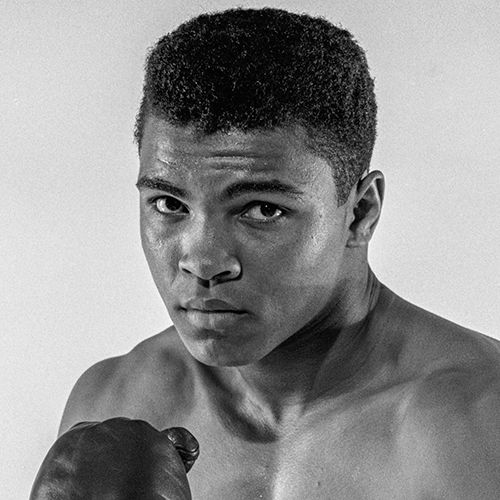
Muhammad Ali
Who is Muhammad Ali? The Life and Legacy of the Boxing Legend
Muhammad Ali is a name that is known globally and is synonymous with boxing and activism. He was born Cassius Marcellus Clay Jr. on January 17, 1942, in Louisville, Kentucky. Ali began his boxing career at the age of 12 and quickly rose through the ranks, winning the Olympic light heavyweight crown in 1960.
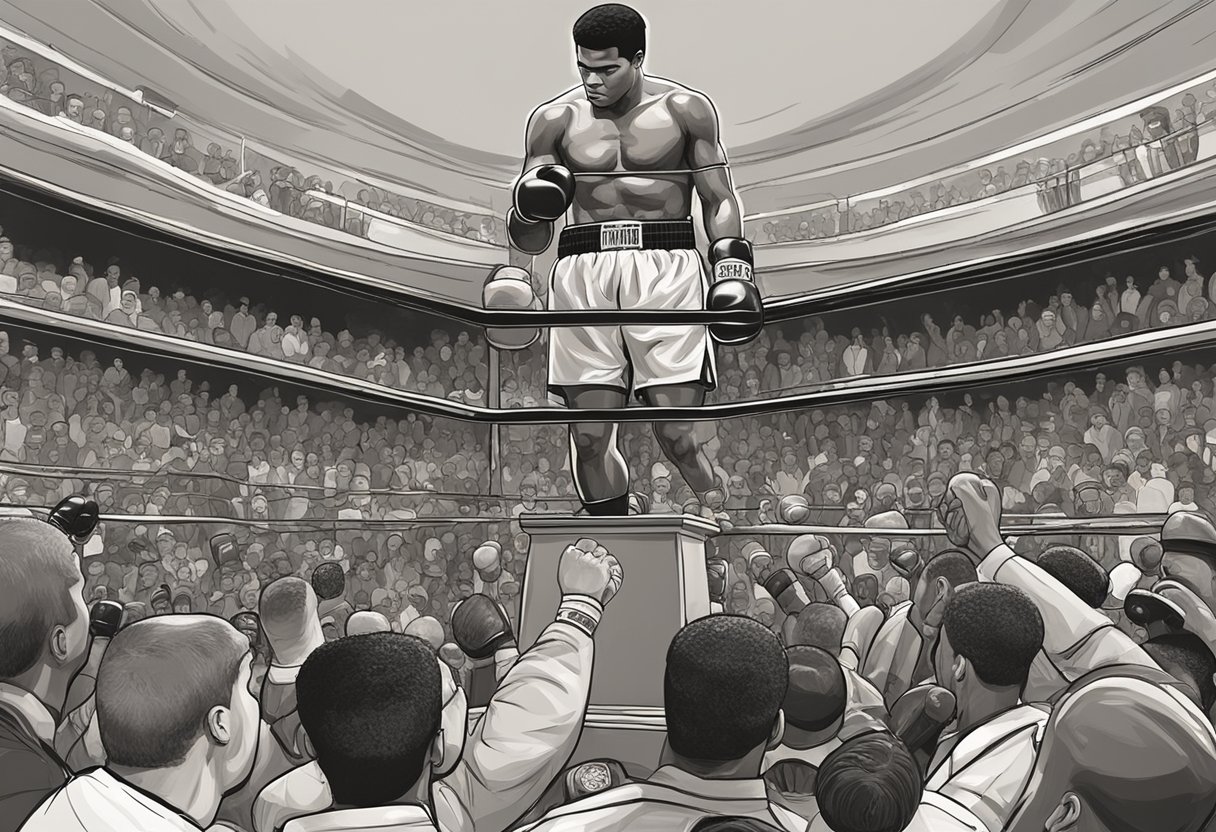
Ali's professional career was filled with numerous achievements, including becoming the first fighter to capture the heavyweight title three times. He was a charismatic and fearless boxer who fascinated the world with his unmatched skills in the ring. However, Ali was more than just a boxer, he was also a social activist who fought for racial and religious equality.
Ali's activism began in the 1960s when he converted to Islam and changed his name from Cassius Clay to Muhammad Ali. He refused to be drafted into the Vietnam War, citing his religious beliefs and opposition to the war. This decision led to him being stripped of his boxing titles and banned from the sport for several years. Despite this, Ali remained committed to his beliefs and continued to fight for social justice throughout his life.
Early Life of Muhammad Ali
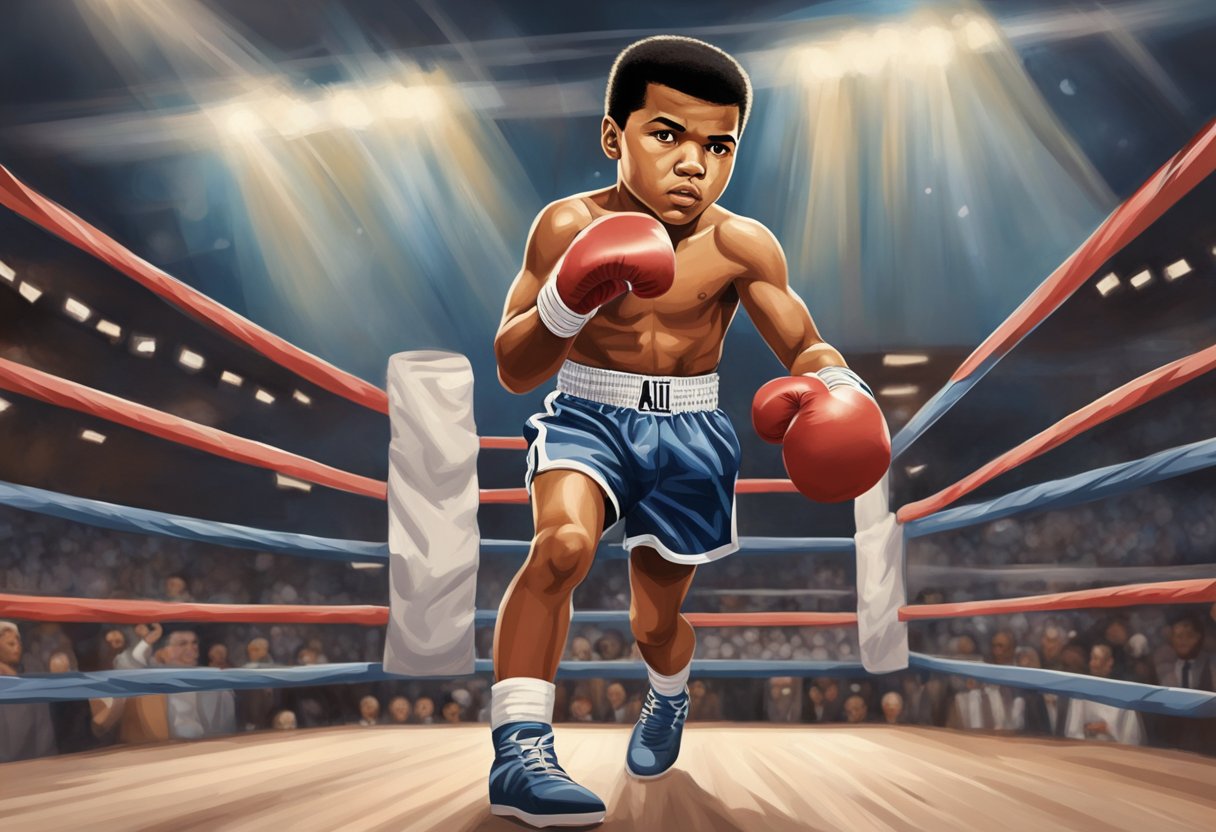
Muhammad Ali was born Cassius Marcellus Clay Jr. on January 17, 1942, in Louisville, Kentucky. He was the first of Cassius Marcellus Clay Sr. and Odessa Grady Clay's two sons. His father was a sign painter who also loved to act, sing, and dance; his mother worked as a cleaning lady when money was tight.
Growing up in a predominantly black neighborhood in Louisville, Ali faced racial discrimination and segregation from a young age. Despite these challenges, he found a passion for boxing at the age of 12 when he was introduced to the sport by a local police officer and boxing coach named Joe Martin.
Under Martin's tutelage, Ali quickly became a skilled boxer, winning his first amateur fight at the age of 14. He went on to win several Golden Gloves championships and, in 1960, represented the United States at the Rome Olympics, where he won a gold medal in the light heavyweight division.
After returning from the Olympics, Ali turned professional and began his ascent to becoming one of the greatest boxers of all time. However, his early life experiences in Louisville and the racism he faced would continue to shape his worldview and influence his activism later in life.
Fun fact: As a child, Ali was known for his quick wit and charming personality. He once told his mother that he was going to "float like a butterfly and sting like a bee" in his upcoming boxing match, a phrase that would become one of his most famous catchphrases.
Amateur Boxing Career
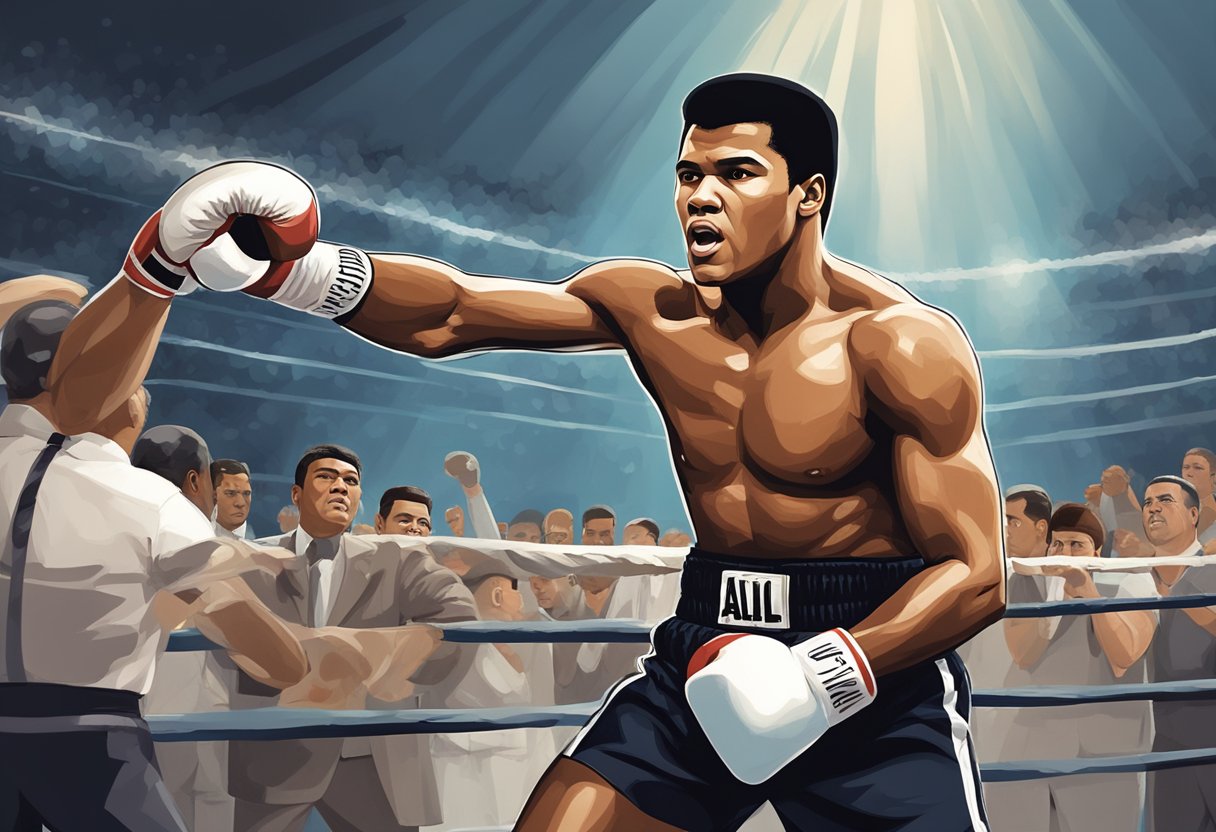
Muhammad Ali began his boxing career as an amateur, where he quickly gained attention for his impressive skills in the ring. He won numerous amateur titles, including the Golden Gloves championship in 1959 and 1960.
In 1960, Ali represented the United States at the Summer Olympics in Rome, where he won a gold medal in the light heavyweight division. He defeated Zbigniew Pietrzykowski of Poland in the final, earning him the nickname "The Greatest" by the media.
Ali's amateur career also included several victories in the Amateur Athletic Union, where he won the National Golden Gloves tournament in 1959 and 1960.
During his amateur career, Ali compiled an impressive record of 100 wins and 5 losses. His success as an amateur boxer laid the foundation for his professional career, where he would go on to become one of the greatest boxers of all time.
Some of Ali's notable amateur achievements include outpointing Gennady Shatkov in the 1960 Olympics 178 Lb Quarterfinals, outpointing Zbigniew Pietrzykowski in the 1960 Olympics 178 Lb Final, and winning the 178 Lb medalists of the 1960 Olympics.
Overall, Ali's amateur career was a testament to his natural talent and dedication to the sport of boxing. His success as an amateur boxer paved the way for his legendary professional career and cemented his status as one of the greatest boxers of all time.
Professional Boxing Career
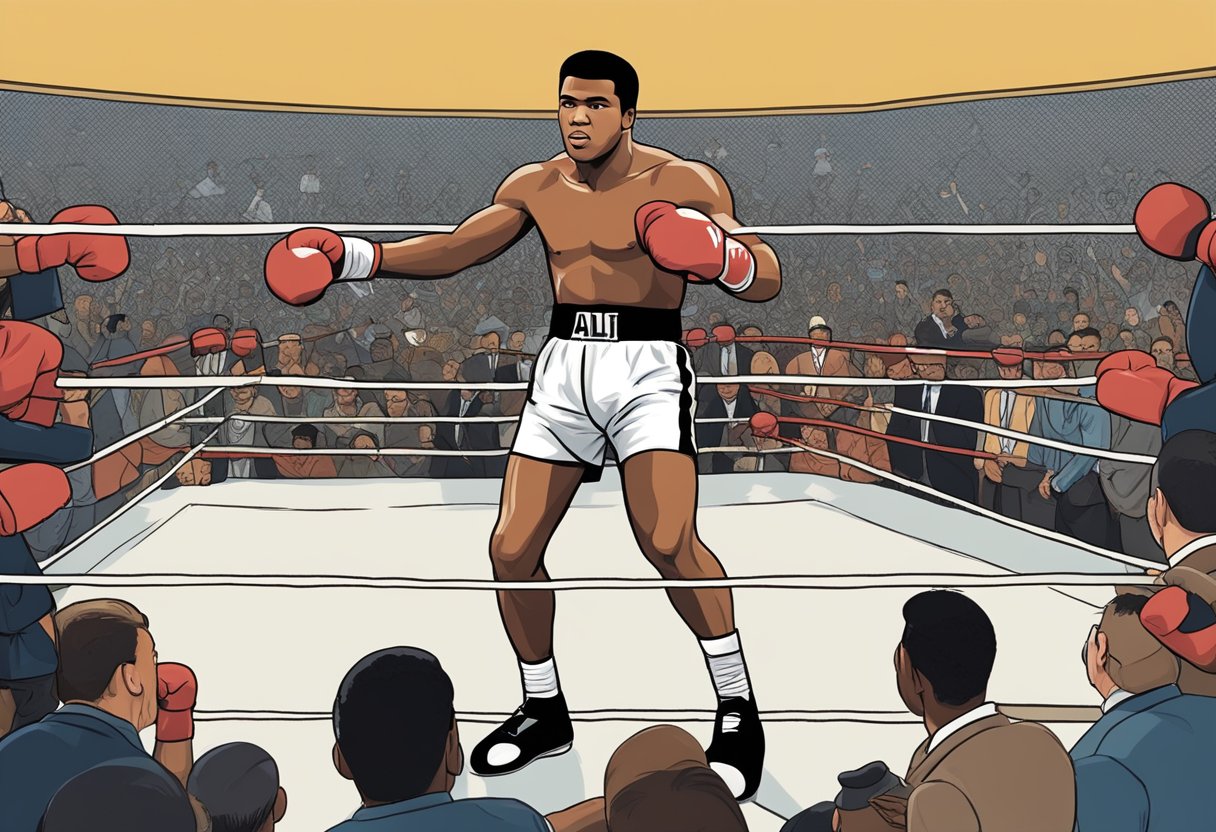
Muhammad Ali is widely regarded as one of the greatest boxers of all time. He was a heavyweight champion who had a professional career that spanned from 1960 to 1981. During this time, he fought some of the most memorable fights in the history of boxing. In this section, we will explore his rise to fame, major fights, boxing style and techniques, retirement and legacy, and his return to the ring.
Rise to Fame
Muhammad Ali, born Cassius Marcellus Clay Jr., began his professional boxing career in 1960. He quickly rose to fame after winning a gold medal in the 1960 Olympics. He became the world heavyweight champion in 1964 after defeating Sonny Liston. He was just 22 years old at the time, and he had become the youngest boxer to win the title.
Major Fights
Muhammad Ali fought some of the biggest names in boxing during his career. Some of his most famous fights include the "Fight of the Century" against Joe Frazier in 1971, the "Rumble in the Jungle" against George Foreman in 1974, and the "Thrilla in Manila" against Joe Frazier in 1975. He also fought Leon Spinks, Larry Holmes, and Trevor Berbick.
Boxing Style and Techniques
Muhammad Ali was known for his unique boxing style and techniques. He was a master of the jab, and he used it to set up his opponents for his powerful right hand. He was also known for his quick footwork and his ability to move around the ring. He was a master of the "rope-a-dope" technique, which he used in his fight against George Foreman.
Retirement and Legacy
Muhammad Ali retired from boxing in 1981 with a record of 56 wins, 5 losses, and 37 knockouts. He was inducted into the International Boxing Hall of Fame in 1990. He was also named "Sportsman of the Century" by Sports Illustrated in 1999. Muhammad Ali's legacy as one of the greatest boxers of all time is secure.
Return to the Ring
Muhammad Ali made a brief return to the ring in 1979 and 1980. He fought Larry Holmes and Trevor Berbick during this time, but he was not the same fighter that he once was. His return to the ring was not successful, but it did not diminish his legacy as one of the greatest boxers of all time.
In conclusion, Muhammad Ali's professional boxing career was one of the most memorable in the history of the sport. He fought some of the biggest names in boxing and won some of the most memorable fights in the history of the sport. His legacy as one of the greatest boxers of all time is secure, and he will always be remembered as "The Greatest."
Religious Conversion and Name Change
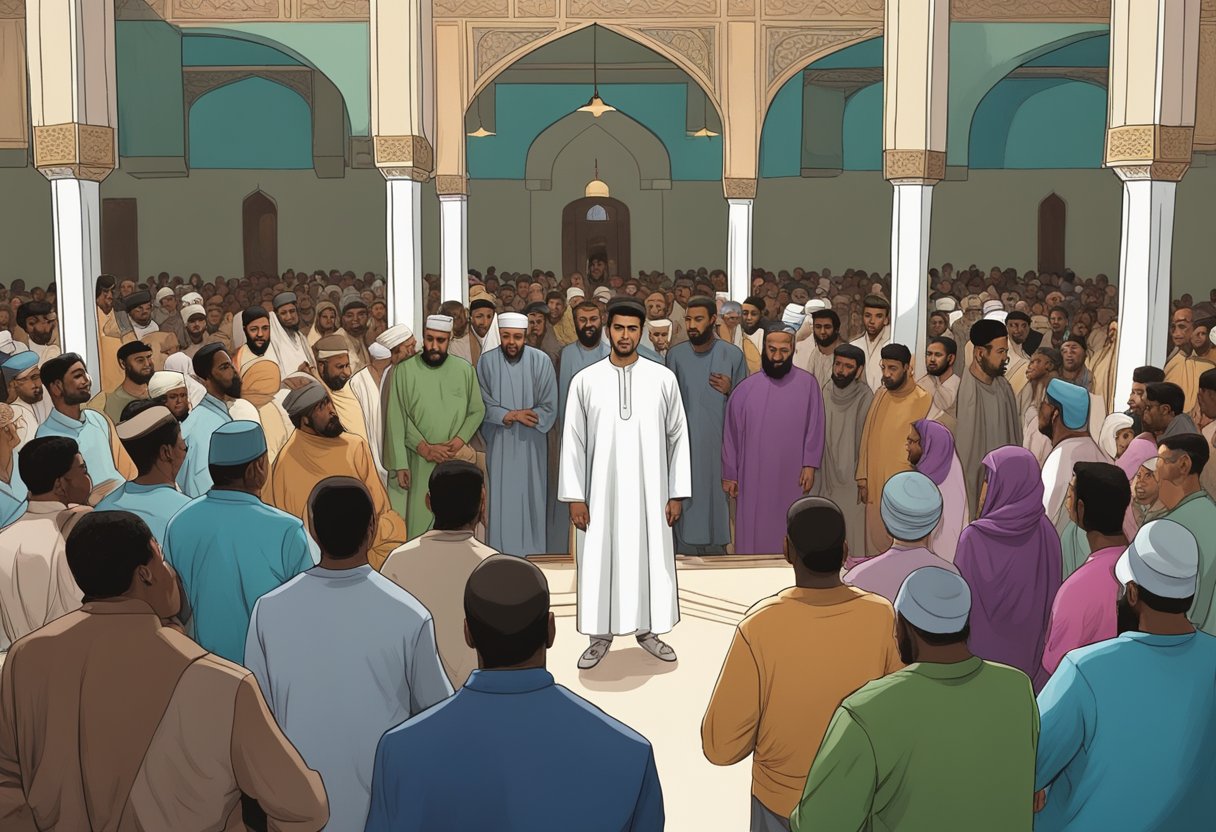
Muhammad Ali's religious conversion and name change were among the most significant events in his life. In 1964, Ali announced that he had joined the Nation of Islam and changed his name from Cassius Marcellus Clay Jr. to Cassius X, and later to Muhammad Ali.
The Nation of Islam was a religious and political organization that advocated for the separation of black and white Americans. The group's leader, Elijah Muhammad, preached that black people were the original people of the world and that white people were a race of "devils."
Ali's conversion to Islam was a turning point in his life and career. He became a spokesperson for the Nation of Islam and used his platform to promote the group's message of black pride and self-determination.
However, Ali's association with the Nation of Islam was controversial. Many Americans, including some in the boxing community, criticized him for his views and his refusal to serve in the Vietnam War.
Despite the criticism, Ali remained committed to his beliefs and continued to speak out on issues related to race and religion. He eventually left the Nation of Islam in 1975 and converted to Sunni Islam.
In conclusion, Muhammad Ali's religious conversion and name change were significant events in his life and career. His association with the Nation of Islam brought attention to issues of race and religion in America, and his commitment to his beliefs inspired many people around the world.
Stance on the Vietnam War
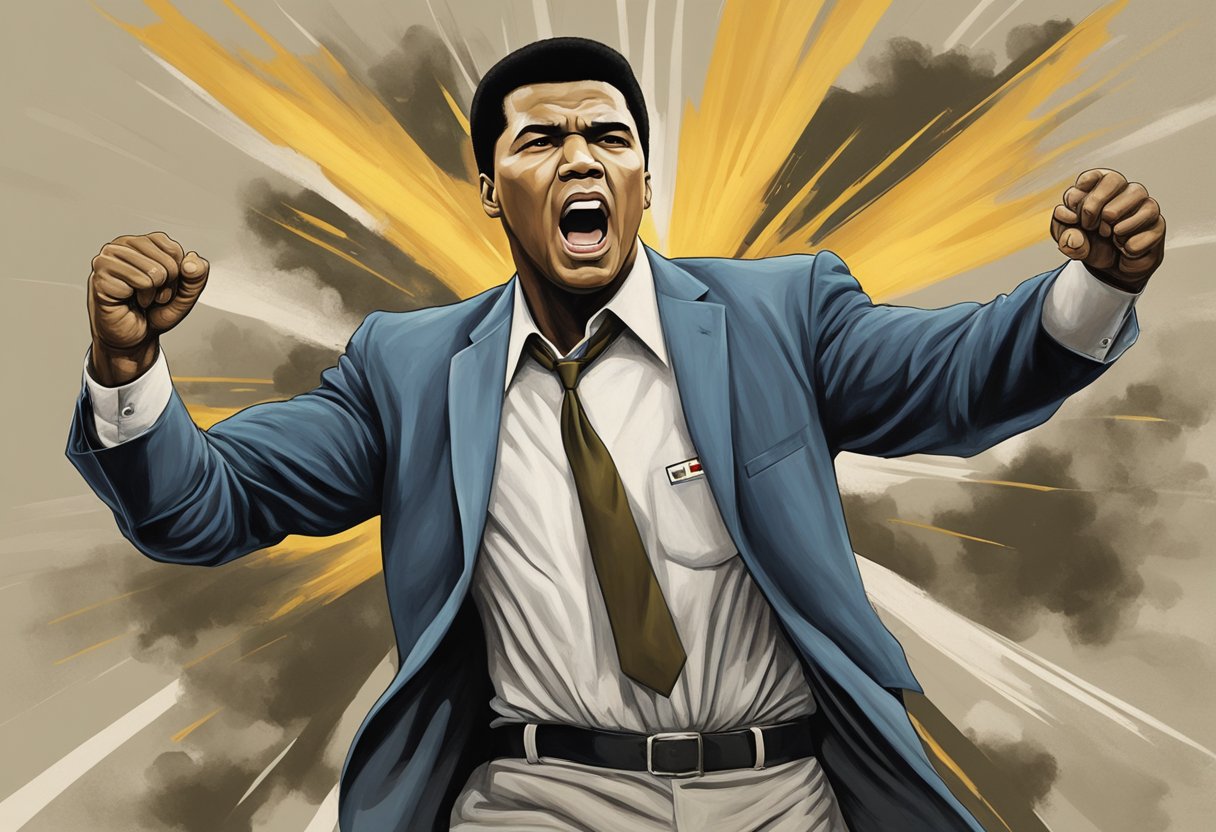
Muhammad Ali was a prominent figure in the anti-war movement during the Vietnam War. He was drafted by the United States military in 1966 and called up for induction in 1967. However, he refused to be inducted into the military, citing his religious beliefs and opposition to the war.
Ali was a devout Muslim and a conscientious objector. He believed that war was against the teachings of Islam and that he could not participate in a war that he considered unjust. He also believed that the draft was discriminatory and that it targeted poor and minority communities.
Ali's refusal to be inducted into the military led to a legal battle that went all the way to the U.S. Supreme Court. In 1971, the court ruled in Ali's favor, stating that his refusal to be inducted was based on his sincere religious beliefs and that he was entitled to an exemption from military service.
Ali's stance on the Vietnam War was controversial, and he faced significant backlash from the public and the media. He was stripped of his heavyweight title, and his boxing license was suspended. However, he remained steadfast in his beliefs and continued to speak out against the war.
In 1970, Ali delivered a speech at a rally against the war, where he famously said, "I ain't got no quarrel with them Viet Cong... They never called me n****r." This statement highlighted the racial inequality and discrimination that existed in the United States at the time.
Ali's refusal to be inducted into the military and his outspoken opposition to the Vietnam War made him a symbol of the anti-war movement. He inspired many people to speak out against the war and to fight for social justice and equality.
Activism and Social Issues
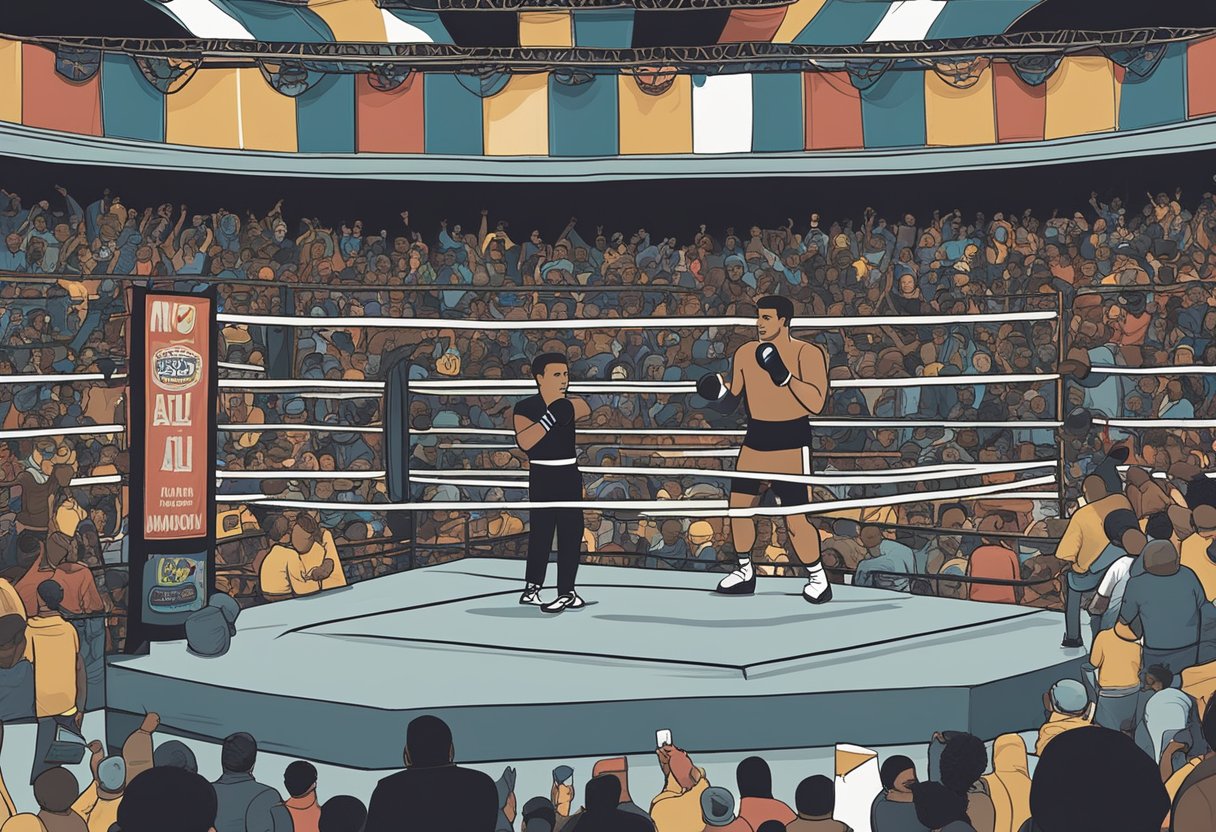
Muhammad Ali was not only a legendary boxer but also a social activist who fought for civil rights and social justice. He was an outspoken opponent of racism and discrimination and a strong advocate for the rights of African Americans.
Ali was a vocal supporter of the Civil Rights Movement and worked alongside other prominent activists of the time, such as Martin Luther King Jr. and Malcolm X. He used his platform as a world-famous athlete to raise awareness about social issues and to promote equality and justice for all.
Ali's activism was not limited to the United States. He was also a vocal critic of the Vietnam War and refused to be drafted into the military, citing his religious beliefs and opposition to the war. This decision cost him his boxing titles and led to a three-year suspension from the sport.
Despite the backlash he faced, Ali remained committed to his beliefs and continued to speak out against injustice throughout his life. He was a powerful voice for change and inspired generations of activists to fight for a better world.
In recognition of his contributions to society, Ali was awarded the Presidential Medal of Freedom in 2005, the highest civilian honor in the United States. His legacy as a social activist and civil rights icon continues to inspire people around the world to this day.
Personal Life

Family
Muhammad Ali was born Cassius Marcellus Clay Jr. on January 17, 1942, in Louisville, Kentucky. He was the son of Cassius Marcellus Clay Sr. and Odessa Grady Clay. His father was a sign painter and his mother was a domestic worker. He had one brother, Rudolph Valentino Clay, and one sister, Cassius Clay. Muhammad Ali was married four times and had nine children in total, including seven daughters and two sons. He was also a grandfather to several grandchildren.
Health and Death
Muhammad Ali was diagnosed with Parkinson's syndrome in 1984, three years after he retired from boxing. Parkinson's is a degenerative disorder of the nervous system that affects movement. The disease gradually worsened over the years, and Ali became increasingly frail. He was hospitalized several times in the years leading up to his death.
Muhammad Ali passed away on June 3, 2016, at the age of 74, due to septic shock caused by a respiratory illness. His funeral was held in Louisville, Kentucky, and was attended by thousands of people from around the world. His daughter, Laila Ali, and his ex-wife, Yolanda Williams, were among the speakers at the funeral.
Throughout his life, Muhammad Ali was known for his strong personality and his unwavering commitment to social justice. He was a devoted father and grandfather, and his legacy continues to inspire people around the world.
Recognition and Honors
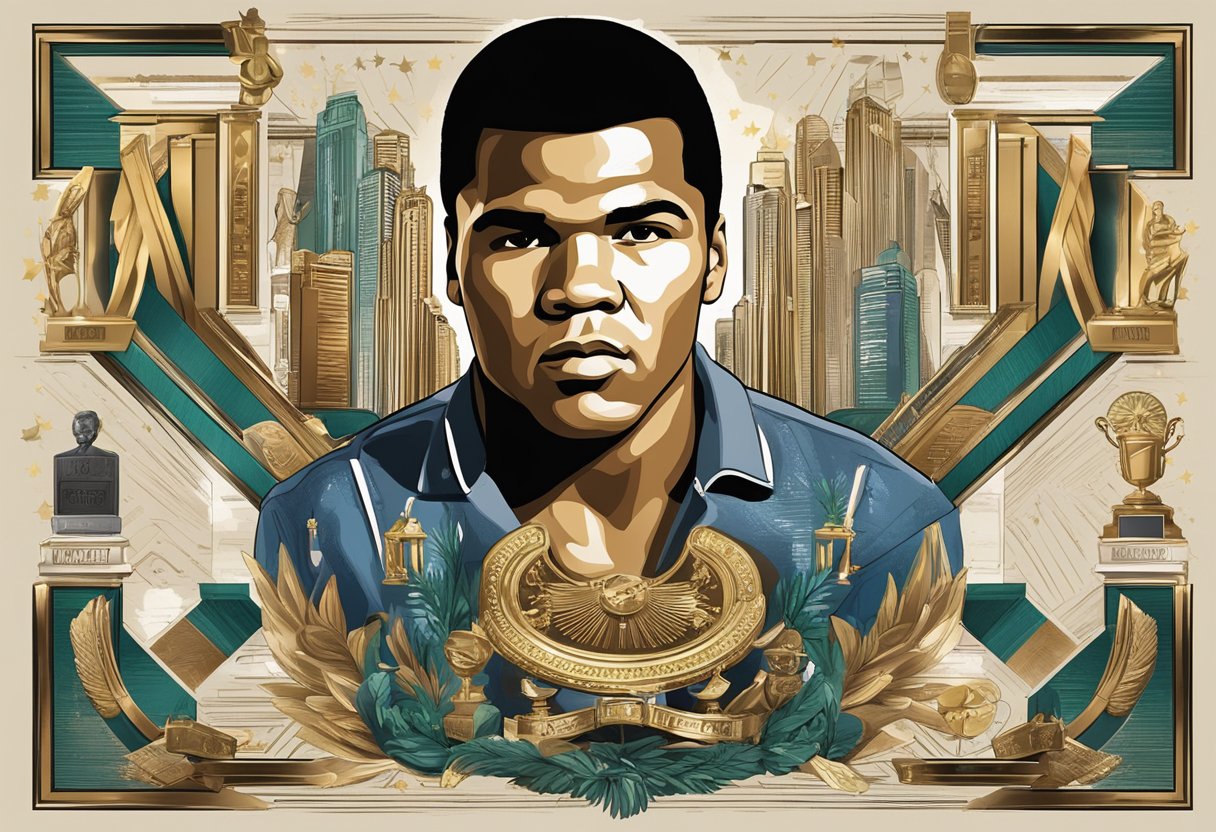
Muhammad Ali is widely recognized as one of the greatest boxers of all time, and his achievements have been honored with numerous awards and accolades. Here are some of the most notable recognitions and honors that Muhammad Ali received throughout his career:
-
Presidential Medal of Freedom: In 2005, Muhammad Ali was awarded the Presidential Medal of Freedom, the highest civilian honor in the United States. This award was given to him for his contributions to the world of sports and his activism outside of the ring.
-
Sports Personality of the Century: In 1999, Muhammad Ali was named Sports Personality of the Century by the BBC, beating out other legendary athletes such as Pelé, Michael Jordan, and Babe Ruth. This award was given to him for his incredible achievements in the sport of boxing and his impact on society as a whole.
-
NAACP Image Award - President's Award: In 2009, Muhammad Ali was recognized with the NAACP Image Award - President's Award for his lifetime of achievements and contributions to civil rights and social justice.
-
BET Humanitarian Award: In 2002, Muhammad Ali was honored with the BET Humanitarian Award for his lifelong commitment to philanthropy and activism.
-
Arthur Ashe Courage Award: In 1997, Muhammad Ali was presented with the Arthur Ashe Courage Award at the ESPY Awards for his bravery in the face of Parkinson's disease.
Throughout his life, Muhammad Ali was also recognized with numerous other awards and honors, including the National Golden Gloves Light Heavyweight Champion, National Amateur Athletic Union champion, and a gold medal at the Rome Olympics for light-heavyweight boxing. His contributions to boxing and society as a whole continue to be celebrated and remembered to this day.
Muhammad Ali Center

The Muhammad Ali Center is a non-profit museum and cultural center dedicated to the life and legacy of Muhammad Ali. Located in his hometown of Louisville, Kentucky, the six-story, 96,750 sq ft (8,988 m2) museum was founded in 2005 by Lonnie and Muhammad Ali.
The Center is much more than a museum. It is a place of inspiration and reflection that celebrates the greatness found in all people. As an athlete, a humanitarian, and a global voice, Muhammad Ali embodied a pursuit and belief in greatness that continues to inspire people from all walks of life.
The Center offers exhibits, events, and programs that create positive change and inspire greatness. It provides education and community engagement to continue Ali's legacy and inspire people to be their best selves.
In addition to exhibits about Ali's life and career, the Center features interactive displays, films, and other multimedia experiences that showcase his impact on the world. Visitors can explore Ali's boxing career, his work as a humanitarian and activist, and his legacy as a global icon.
The Muhammad Ali Center is a must-visit destination for anyone interested in the life and legacy of Muhammad Ali. It is a testament to his enduring impact on the world and his belief in the power of greatness to inspire positive change.
Muhammad Ali Products

Muhammad Ali was not only a legendary boxer but also a cultural icon. His charisma and motivational words have inspired generations of people. Today, there are many products that feature Muhammad Ali, including posters, t-shirts, and other memorabilia.
One website that sells Muhammad Ali posters is Hustler's Inventory. We offer a diverse collection of iconic boxing moments, capturing the spirit and dynamism of the legendary Ali. You can add a piece of history to your wall with their high-quality prints. They also offer limited edition prints of some of Ali's most famous fights.
One of their most popular posters is the "Mountain To Climb" poster, showcasing Ali's iconic saying. This poster is a great reminder of the power of perseverance and determination, two qualities that Ali embodied throughout his career. Another popular poster is the "Achieve It" poster, which features a stunning image of Ali mid-fight.
If you're a fan of Muhammad Ali, these posters are a great way to celebrate his legacy and show your support for one of the greatest boxers of all time. They're also a great gift for anyone who loves boxing or is inspired by Ali's life story.
Related Posts:
- Muhammad Ali Posters: Showcasing a Boxing Legend's Journey
- Muhammad Ali Poster
- Muhammad Ali Boxing Poster: Relive the Glory of a Legend
Frequently Asked Questions
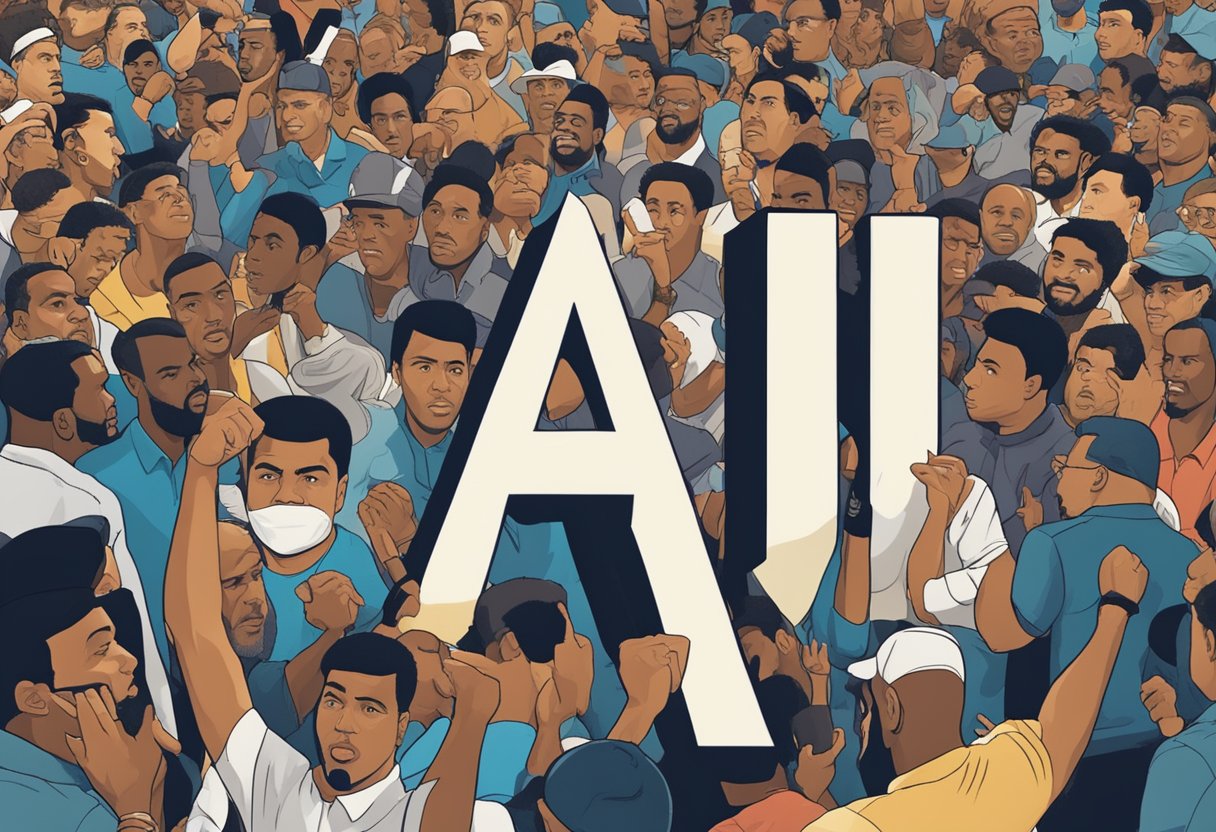
What were Muhammad Ali's greatest achievements?
Muhammad Ali, also known as Cassius Clay, is widely regarded as one of the greatest boxers of all time. He won the heavyweight championship three times, and his victories against Sonny Liston, George Foreman, and Joe Frazier are considered some of the most iconic moments in sports history. Ali was also an Olympic gold medalist, winning the light heavyweight division at the 1960 Rome Olympics. His achievements in the ring were matched by his activism outside of it, as he became a prominent voice in the civil rights movement and an advocate for peace.
What was Muhammad Ali's impact on the world of boxing?
Muhammad Ali revolutionized the sport of boxing with his unique style and personality. He was known for his quick footwork, lightning-fast jabs, and unorthodox fighting style, which he called "float like a butterfly, sting like a bee." Ali's charisma and showmanship also helped to popularize boxing, making it a mainstream sport and paving the way for future stars like Mike Tyson and Floyd Mayweather. Ali's impact on the sport of boxing is still felt today, and he remains an inspiration to aspiring boxers around the world.
How many times did Muhammad Ali win the heavyweight championship?
Muhammad Ali won the heavyweight championship three times, in 1964, 1974, and 1978. His first victory came against Sonny Liston, when he was just 22 years old. Ali lost the title in 1967 after refusing to be drafted into the Vietnam War, but he regained it in 1974 with a stunning upset victory over George Foreman in the "Rumble in the Jungle" in Kinshasa, Zaire. Ali's final championship victory came in 1978, when he defeated Leon Spinks in a rematch.
What was Muhammad Ali's relationship with his family?
Muhammad Ali had a close relationship with his family, particularly his children. He was married four times and had nine children. His daughter Laila Ali followed in his footsteps and became a professional boxer, winning multiple world titles in her own right. Ali's family was also supportive of his activism and his efforts to promote peace and social justice.
What was Muhammad Ali's net worth at the time of his death?
Muhammad Ali's net worth at the time of his death in 2016 was estimated to be around $50 million. However, his true legacy is not measured in dollars and cents, but in the impact he had on the world of boxing and the broader culture.
What were some of Muhammad Ali's most famous quotes?
Muhammad Ali was known for his quick wit and his way with words. Some of his most famous quotes include "Float like a butterfly, sting like a bee," "I am the greatest," and "Service to others is the rent you pay for your room here on earth." Ali's words continue to inspire and motivate people around the world, and his legacy as a boxer, activist, and cultural icon will endure for generations to come.
